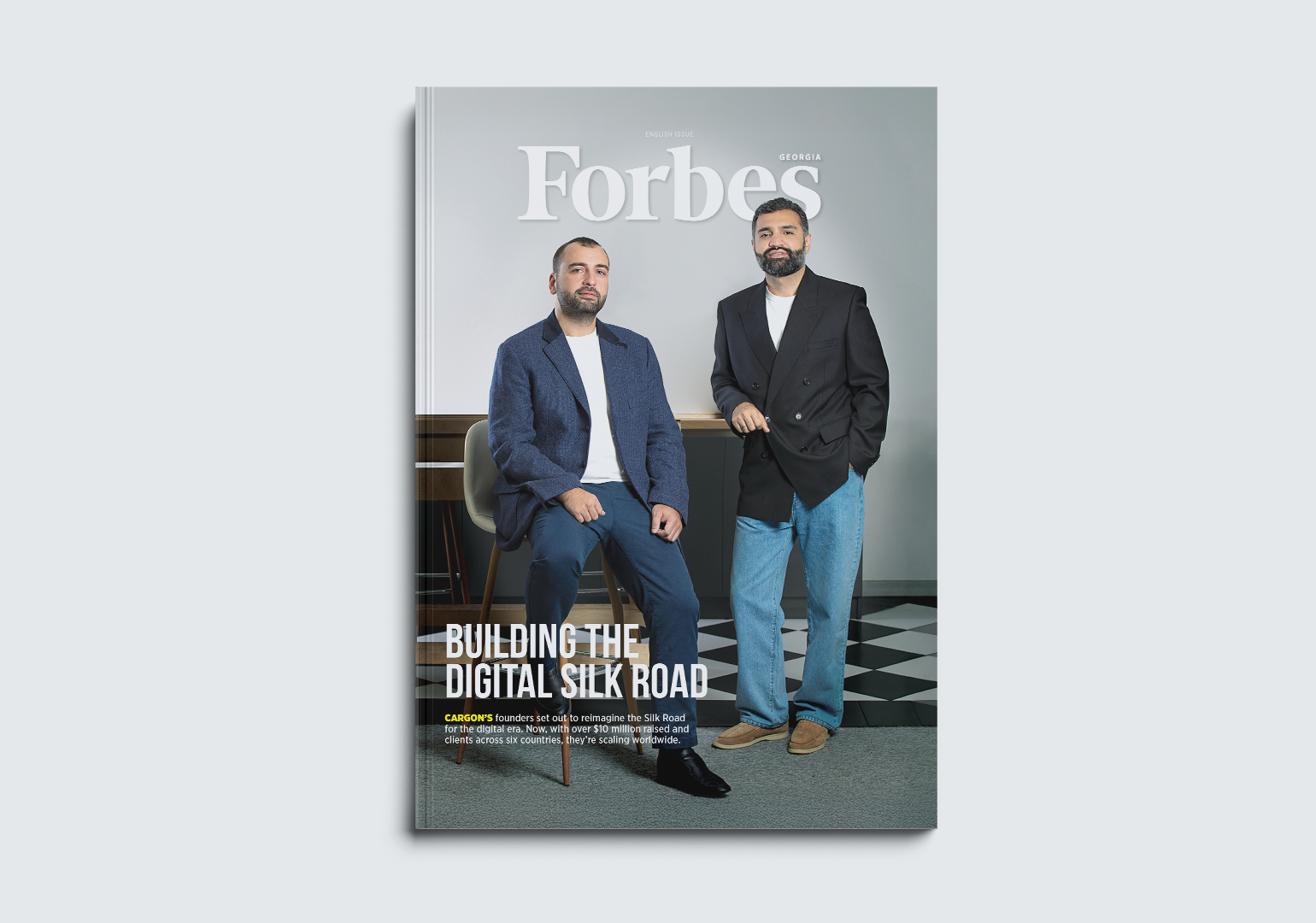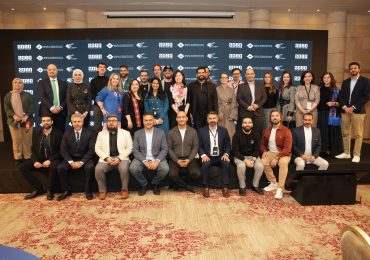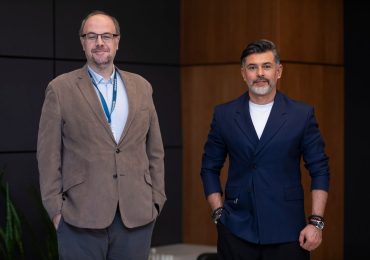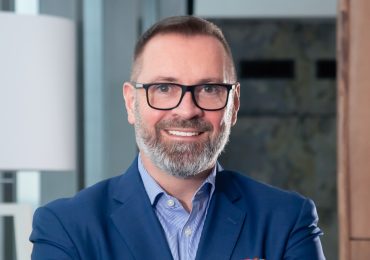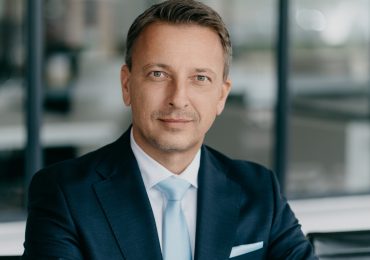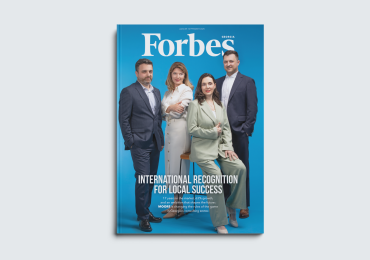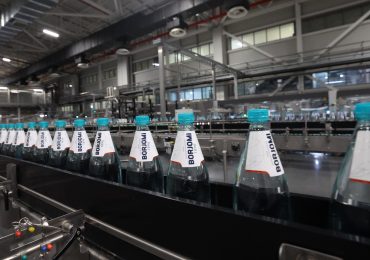When Niko Turabelidze, Vano Chaladze and Shalva Jalabadze founded Cargon in Georgia, their goal was to bring digital tools to one of the world’s most traditional industries. With $7 million in new funding and major multinational clients across six countries, they now aim to expand through Europe and Asia — and revive the Silk Road in a modern, tech-driven form.
Author: Anina Tepnadze
Let’s start at the beginning — how did the idea for Cargon first come about, and what problem does it aim to solve?
Niko: The spark came during the wave of “Uberization.” We watched industries transform through digital platforms, yet logistics — one of the largest sectors in the global economy — remained stuck in the past. Layers of intermediaries, opaque pricing, zero visibility. Everyone was paying more but getting less.
Our initial vision was straightforward: build a digital platform that cuts through inefficiencies and connects shippers with carriers directly. As we went deeper, we discovered the real complexity — customs, insurance, cross-border regulations, payment cycles. Those puzzle pieces shaped Cargon into an end-to-end logistics and financing ecosystem.
Vano: The idea was inspired by the ‘sharing economy’. We saw how this model disrupted traditional industries and believed it could address logistics inefficiencies. One of my co-founders came from a family that owned a trucking business, which gave us frontline insight into the daily struggles carriers and shippers face.
We quickly realized logistics was far more complex than we’d imagined — but that complexity created opportunity. By building solutions around real problems, we’ve unlocked efficiency, transparency, and value for everyone involved.
As childhood friends and now co-founders, how do you balance each other’s strengths in running Cargon?
Niko: Early on, we did everything ourselves — sales, operations, customer support. Over time, we found our rhythm. I focused on operational challenges and product vision, drawing on prior experience, while others concentrated on their strengths.
Some decisions we always make together — fundraising, strategy, company-wide goals. Once direction is clear, we execute independently. The trust we built long before Cargon lets us challenge each other without ego. That balance keeps us moving forward.
Vano: As we grew, our roles naturally differentiated. I now focus on day-to-day process management, sales, team building, and leading fundraising and investor relationships.
What makes it work is the foundation of our friendship. It gives us the ability to support one another through highs and lows. That trust has been vital to navigating challenges and building Cargon together.
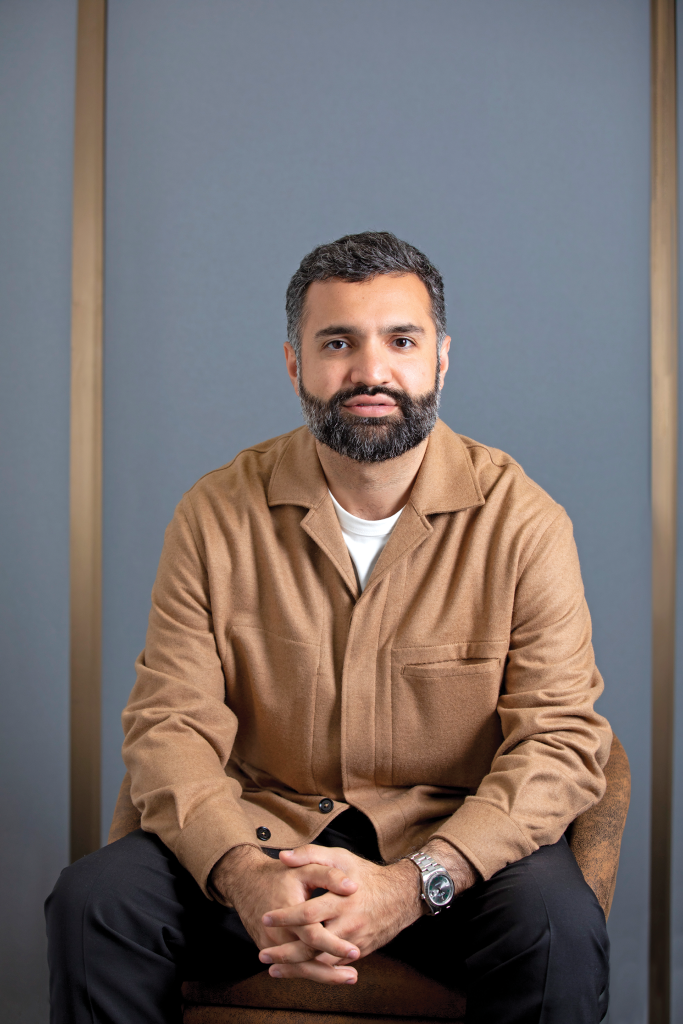
Why do you think no one had built a similar comprehensive logistics platform in your region before? What did you see that others didn’t?
Niko: Some tried. There were startups in Georgia that attempted digital freight solutions. But many underestimated how complex international freight really is. Unlike domestic logistics, you can’t just connect a shipper with a carrier and declare victory. You need document exchange, customs, insurance, international regulations, and you need to solve the liquidity gaps created by long payment terms.
Others saw logistics as matching supply and demand. We saw it as building an entire infrastructure layer.
Vano: We were among the first to recognize that modern technology could tackle logistics inefficiencies in our region in a meaningful way. Others had tried, but many failed because they built technology for technology’s sake rather than solving actual problems customers face daily.
Logistics is one of the most traditional, complex industries — introducing tools that don’t address real pain points often creates more complications. From day one, we believed technology should simplify and add genuine value. Our entire product development approach has been rooted in understanding the needs of shippers, carriers, and partners, then designing solutions that make their lives easier.
That focus on practical impact rather than innovation theater set us apart.
Niko, you have a history of building innovation-driven companies. What lessons from your past ventures shaped how you built Cargon?
Niko: First — listen. Creating space where your team feels encouraged to voice bold ideas is often where breakthroughs begin.
Second — plan your cash flow meticulously. Growth without solid financial planning can be fatal. You need to know exactly where capital is coming from and how quickly you can grow sustainably.
Third — focus ruthlessly on priorities. It’s easy to get distracted by shiny features, especially in traditional industries. The real challenge is keeping everyone aligned on core goals.
Lastly — think in systems. Every decision creates ripple effects you don’t always anticipate. I constantly ask: how will this choice play out if we’re ten times bigger? That mindset helped us design Cargon with scale in mind from day one.
What was the biggest challenge in taking Cargon from an idea to a functioning global company?
Niko: Capital. Our region doesn’t have the same access to risk capital that founders in the U.S. or UK enjoy. Building disruptive technology requires investors willing to take early bets, and that culture is still developing here.
Funds like Sturgeon Capital, our largest investor, saw the region’s potential and are now active in our part of the world. Over time, we hope more investors recognize that this region produces exceptional founders with unique access to one of the world’s most important trade corridors.
Vano: While access to capital was certainly a hurdle, another major challenge was building trust in such a traditional industry. Convincing shippers and carriers to adopt a completely new way of operating required patience, persistence, and proving through execution that technology could make their businesses more reliable and profitable.
Since no one had built something like this in our region before, we had to find and develop talent, create a culture of innovation, and scale quickly. Balancing those two challenges — earning trust externally while building the right team internally — was critical.
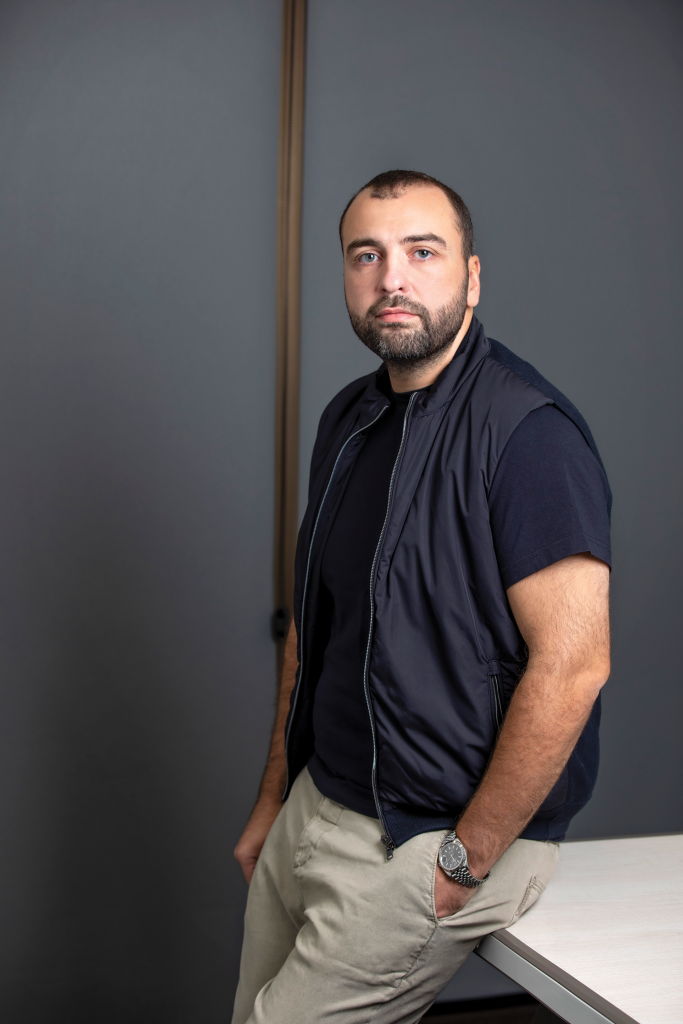
Looking back, what were the turning points that defined Cargon’s trajectory — the moments when you realized this idea could really scale?
Niko: When we moved from serving SMEs to onboarding global multinationals. When the largest companies in the region not only gave us a chance but kept coming back month after month — that was proof of strong product-market fit.
Vano: For me, the turning point came when we started engaging directly with our partners — the drivers and carriers. I still remember showing them our solution at truck stops and seeing their reactions. The relief and excitement on their faces, the feedback they shared, the way they immediately started asking for new features — that made me realize we were solving real problems. Their enthusiasm showed me this was a platform that could truly transform the industry.
You’ve just closed a $7M funding round. What convinced investors, and how will you use this capital to fuel growth?
Niko: We have strong traction in a massive industry with an enormous addressable market — and we’re the first movers successfully changing the logistics landscape. That gives us leverage with international investors.
This investment round had a very specific purpose: launching Cargon Capital — our tech-enabled financing solution that helps shippers and carriers bridge liquidity gaps. The $5M facility is dedicated entirely to this. The remaining $2M will support our growth, expand further into Turkey, and broaden our services into fully managed LTL deliveries from Europe.
Vano: In our last round, we raised $7 million, bringing total funding to over $10 million in just a few years. What convinced investors was the traction and results we achieved with very limited resources — proof that with more capital, we could scale much faster.
One of the biggest challenges in logistics across our region is the working capital gap. This round allows us to address that directly by launching one of the first financing products for the industry in this part of the world. Through Cargon Capital, thousands of carriers will unlock liquidity and take on more shipments with our backing.
Can you tell us more about Cargon Capital?
Niko: Cargon Capital is our UK subsidiary, and its purpose is to close the cash-flow gap in logistics with technology and data. Shippers can access payment terms of up to 120 days, while carriers receive their money instantly — even with pre-payments to cover in-transit costs. Supporting carriers has always been a top priority, and advance financing makes a significant difference.
Choosing the UK was a natural step. I’m based in London and provide founder-level management services here, while the jurisdiction offers investors confidence through its robust compliance framework and tax efficiency.
Beyond revenues and expansion, what achievement are you most proud of so far in Cargon’s journey?
Niko: The team we’ve built. We’re united by the same vision across six countries, working together toward the same goals. Seeing results unfold keeps a unique drive alive within the team — it’s genuinely inspiring.
Vano: That we kept going through times when it would have been easier to give up. Fundraising struggles, operational hurdles, market shocks — we stood by each other and pushed through. That resilience has defined who we are today.
Many compare you with global players like Flexport or Nowports. How do you define Cargon’s unique edge?
Niko: Companies like Flexport — which, by the way, is one of our investors — inspire us to keep pushing innovation. But our solution is uniquely tailored to the challenges of our region. It tackles the most pressing issues: pricing, visibility and control, trust, and now financing.
We’ve not only excelled in these areas but unified them under a single platform. That universality has enabled us to become the leading digital logistics solution in the region.
The logistics space requires constant innovation — where do you personally look for inspiration when designing new tools and services?
Niko: Inspiration always comes from problems. We utilize advanced data, customer feedback, and new hypotheses to identify pain points, then resolve them with technology. My dual role as COO and CPO helps tremendously: it allows me to spot both operational and service gaps, then work with my team to build solutions.
We also examine adjacent industries to identify areas where we can adapt and apply proven solutions. One belief I hold strongly: there’s no problem that can’t be solved — fully or at least partially — through innovation, whether in technology, processes, or management. At Cargon, we prove that every day.
Vano: For me, inspiration comes directly from our customers and shippers. Our team is deeply connected to them, and many of our best ideas come from feedback we gather on the ground.
Cargon Capital is a perfect example — it was born from conversations with partners who struggled with liquidity. By listening closely, we realized this was a problem we were uniquely positioned to solve. That close collaboration continues to guide our innovation and development.
What’s the bigger mission behind Cargon — beyond profits, what do you hope to change in the logistics industry and the region?
Niko: We want international logistics to feel seamless — whether you’re a multinational giant or a small Georgian exporter shipping to Europe. Our mission is to give businesses the tools, visibility, and financing they need to make logistics simple and accessible. If we succeed, we’re not just moving goods — we’re helping unlock growth across the economies where we operate.
Vano: Cargon’s bigger mission is to build a modern Silk Road. It’s no coincidence we were founded in Georgia, at the crossroads of Europe and Asia. By creating efficient digital infrastructure for trade, we’re reviving the role this corridor has always played: enabling the exchange of goods, ideas, and cultures across continents.

